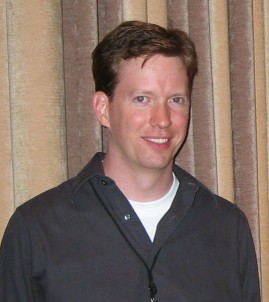
Recently, the physicist Sean Carroll, Senior Research Associate in Physics at the California Institute of Technology, composed an article entitled Does the Universe need God? for The Blackwell Companion to Science and Christianity (eds. James B. Stump and Alan G. Padgett, Wiley-Blackwell, due for publication in 2012). There are lots of things I’d like to say in response to Professor Carroll’s article, but instead, I’ve decided to condense my remarks into a set of seven questions, which I hope Professor Carroll will be kind enough to answer.
1. In your article, you’ve argued that the ultimate explanation of why events happen is that things are simply obeying the laws of nature – in particular, the laws of physics. What do you mean by the term “law of nature”? Specifically, are the laws of nature (a) rules which prescribe the behavior of objects, or (b) mere regularities which describe the behavior of objects?
2. Do you believe that rules, which prescribe the behavior of objects, are a fundamental and irreducible feature of the cosmos, even in the absence of human observers?
3. If your answer to question 2 is “Yes,” then what do you mean when you claim in your article that things in the universe obey rules – you describe them as “obeying the laws of physics” – while at the same time denying the existence of a Mind that made these rules? How can rules exist in the absence of a mind?
4. If your answer to question 2 is “No,” and rules are not a fundamental feature of the cosmos, then why is it rational for scientists to believe that the universe will continue to conform to the laws of nature in the future, instead of violating them? Specifically, why should I believe that the sun will rise tomorrow at the forecast time, when there is no rule saying that it should rise, and when there are innumerable ways in which it could fail to do so?
I hope you will resist the temptation to answer: “Because it’s simpler.” It’s one thing to try and order the observations you’ve already made in the simplest way you can. That’s what scientists do. But it would be naive to expect the universe to go on behaving simply in the future, simply because it would fit your favorite theory better if it did. That would be an anthropomorphic projection of human wishes onto the cosmos. In a cosmos without rules, it simply makes no sense to say that our remarkably lucky run of sunrises every day for the past 4.5 billion years should continue in future, and it would surely be very surprising if they did continue.
I hope you will also resist the temptation to answer: “It’s rational to believe that the cosmos behaves in a reliable fashion, because we wouldn’t be here if it didn’t.” That’s a perfectly good reason to believe that the cosmos has behaved reliably in the past, but it doesn’t constitute a reason for believing that it will behave reliably in the future.
5. You’ve stated that “All else being equal, a simpler scientific theory is preferred over a more complicated one,” and you’ve defined simplicity in terms of Kolmogorov simplicity: “The simplicity of a theory is a statement about how compactly we can describe the formal structure.” All very well and good. Now, supposing the cosmos to be the work of an infinitely wise and benevolent Creator, would you agree that we should expect the laws of the cosmos to exhibit the maximum degree of Kolmogorov simplicity compatible with the emergence of free and intelligent human beings?
6. You’ve written that “the much-more-than-anthropic tuning that characterizes the entropy of the universe is a bigger problem for the God hypothesis than for the multiverse” and you add that “It’s unclear why God would do so much more fine-tuning of the state of the universe than seems to have been necessary.” For my part, I will readily acknowledge that the much-more-than-anthropic tuning which we observe is an extremely odd fact, which requires an explanation. Would you agree that if scientists discovered that a universe with much-more-than-anthropic tuning has a much higher degree of Kolmogorov simplicity than a universe with just enough entropy to permit the emergence of intelligent human beings, this discovery would constitute a striking confirmation of the hypothesis that the cosmos is the work of an infinitely wise and benevolent Creator? Would you also agree that the best way to answer questions like “Why does God favor three generations of elementary particles, with a wide spectrum of masses?” is to try and establish whether a universe built in this way exhibits a higher degree of Kolmogorov simplicity than one which does not?
7. Using scientific terminology, can you rigorously define a set of laws of nature which: (a) exhibit at least the same degree of Kolmogorov simplicity as the laws of our own cosmos; and (b) entail the emergence of intelligent human beings who are invariably kind and never evil, and whose virtuous acts are always rewarded – as in the hypothetical world you described in the final paragraph of your article, Does the Universe need God? If not, then how can you consistently claim that the laws of our cosmos – which are at least friendly enough to permit the emergence and continuation in existence of intelligent human beings with libertarian free will – constitute evidence against the existence of an infinitely wise and benevolent God?